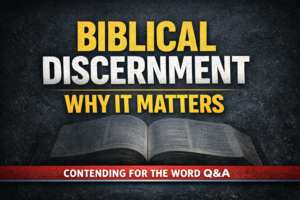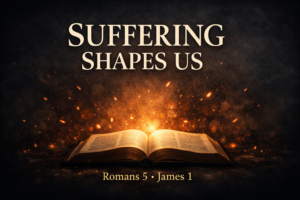⏱️ Estimated Reading Time: 4 min read
 The discussion concerning the origins of the universe is a debate that seems to be without end. Even within Christian circles, there are a number of positions taken to include those who affirm the universe is young (YEC) and those who aver the universe is much older (OEC). Both sides claim to reject Darwinian evolution and both ends of the spectrum claim to adhere to sound biblical principles while also engaging in sound scientific discovery. So which view is correct? In an effort to shed light on the questions that are both asked and answered by those who adhere to the YEC and OEC constructs, authors Kenneth Keathley and Mark Rooker have provided a helpful book aptly called 40 Questions About Creation and Evolution.
The discussion concerning the origins of the universe is a debate that seems to be without end. Even within Christian circles, there are a number of positions taken to include those who affirm the universe is young (YEC) and those who aver the universe is much older (OEC). Both sides claim to reject Darwinian evolution and both ends of the spectrum claim to adhere to sound biblical principles while also engaging in sound scientific discovery. So which view is correct? In an effort to shed light on the questions that are both asked and answered by those who adhere to the YEC and OEC constructs, authors Kenneth Keathley and Mark Rooker have provided a helpful book aptly called 40 Questions About Creation and Evolution.
As the title of the book suggests, it addresses 40 important questions that formulate the basis for discussion when it comes to origins and how those in the origins camps respond to Darwinian evolutionary dogma as well as how they interact with Scripture. This is not a decidedly pro-YEC or pro-OEC book or for that matter an anti-YEC or anti-OEC discussion. Instead, the authors choose to provide the reader with the reasons both viewpoints give for their assertions.
While I am unquestionably in the YEC camp, I found the information and data provided by Keathley and Rooker to be honest. When it comes to something like the subject of origins, the position one takes is largely due to the lens they view the available data through. Furthermore, there are some inherent difficulties for both the YEC and the OEC adherent concerning providing evidence for events for which there were no eyewitnesses. The one eyewitness account, of course, is God the Creator of all things and He certainly has given us quite a bit of information in Scripture about creation. The difficulty has been how one defines terms such as the Hebrew word yom and how modern science and the purported evidence for what transpired at the dawn of the universe should be interpreted.
Keathley and Rooker present both sides of the argument quite fairly, noting when some arguments are strong for both positions and admitted areas of weakness, both concerning matters of scientific importance as well as how those positions interact with the Scriptural evidence. As a staunch YEC, I actually appreciated the author’s honest and balanced approach to each of the 40 questions they deal with throughout this book. There is a great deal of valuable information that will be of great use regardless of what side of the debate one resides.
Will this book put to rest the ongoing debate over origins? Absolutely not and that is not the intent of the authors. What his book does provide is insight into the debate, why the various positions approach the evidence the way they do, and why the subject of origins is so important to engage. Topics ranging from original sin, death before sin, the days of the creation week, the extent of Noah’s flood, and the Intelligent Design movement are all discussed by the author’s in an accessible and extremely helpful manner. At the end of the day and after reading this book I still remain a firm proponent of the YEC position. With that said, I have a greater understanding of the opposing viewpoint and a plethora of information from which to engage in further study on the topic of origins. This is a book I highly recommend to both OEC and YEC adherents.
This book is available for purchase from Kregel Academic by clicking here.
I received this book for free from Kregel Academic for this review. I was not required to write a positive review. The opinions I have expressed are my own. I am disclosing this in accordance with the Federal Trade Commission’s 16 CFR, Part 255 : “Guides Concerning the Use of Endorsements and Testimonials in Advertising.”




